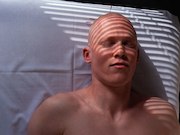Comorbid disorders of depression, anxiety, PTSD, and insomnia all associated with nightmares
WEDNESDAY, March 21, 2018 (HealthDay News) — For U.S. military personnel with sleep disturbances, nightmares are highly prevalent, and nightmares are frequently comorbid with other sleep and mental health disorders, according to a study published in the March issue of the Journal of Clinical Sleep Medicine.
Jennifer L. Creamer, M.D., from Martin Army Community Hospital in Fort Benning, Ga., and colleagues conducted a retrospective study involving 500 active-duty U.S. military personnel who underwent a sleep medicine evaluation and polysomnography. Clinically significant nightmares were characterized using the Pittsburgh Sleep Quality Index and the Pittsburgh Sleep Quality Index-Addendum.
The researchers found that 31.2 percent of the participants had at least weekly nightmares, although only 3.9 percent reported nightmares as a reason for assessment. Sixty percent of patients with nightmares had trauma-related nightmares. Compared to those without nightmares, patients with nightmares had significantly increased sleep onset latency (SOL) and rapid eye movement (REM) sleep latency (mean SOL/REM sleep latency, 16.6/145 minutes versus 12.5/126 minutes). The comorbid disorders of depression, anxiety, posttraumatic stress disorder, and insomnia were all associated with nightmares (relative risks, 3.55, 2.57, 5.11, and 1.59, respectively).
“Clinically significant nightmares are highly prevalent in U.S. military personnel with sleep disturbances,” the authors write. “Nightmares are associated with both subjective and objective sleep disturbances and are frequently comorbid with other sleep and mental health disorders.”
Copyright © 2018 HealthDay. All rights reserved.








